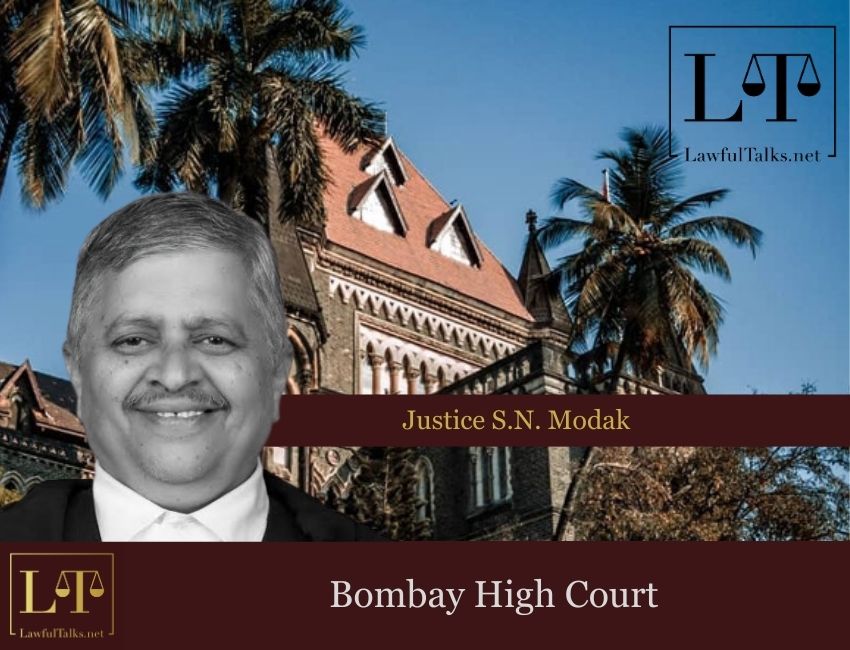Allahabad HC Sets Aside Afzal Ansari's Conviction, Allows Him to Continue as MP

The Bombay High Court Bench, presided over by Justice S.M. Modak, recently ruled on a critical issue surrounding the amendment of a plaint after the commencement of a trial. This decision addresses the parameters under which such amendments can be made, particularly in light of the Code of Civil Procedure (CPC), 1908, and the principles guiding the conduct of civil suits.

The Bench reviewed the petitioners' objection to the trial court's decision, which had granted permission for Respondent No. 1's request to amend the plaint. This request came after the trial had already commenced, which was a key point of contention.
The trial court initially granted the amendment application, considering the plaintiff’s age and illiteracy. The court believed that she had only recently obtained the certified copies of the sale deeds and therefore allowed the amendment. The court had reasoned that the amendment was essential for resolving the core issue between the parties.
However, the Bombay High Court took a stricter approach. It noted that the standard of deciding based on the "real controversy" only applies if the amendment is requested before the trial begins. In contrast, after the trial has commenced, a stricter "due diligence" standard is required. This distinction is significant under Order 6, Rule 17 of the Code of Civil Procedure (CPC), which governs amendments to pleadings. The High Court stated that, after the commencement of the trial, amendments should be discouraged unless there is clear evidence of diligence on the part of the party requesting the amendment.
The court further explained the purpose of the due diligence proviso: “This proviso is added only for curtailing the vexatious amendments.” The rationale is that once parties have established their positions, they should not be allowed to introduce new claims that could undermine the established arguments. This is especially crucial when defendants have objected to the absence of certain reliefs in the initial pleadings. The court made it clear that the purpose of the proviso is to limit unnecessary amendments that could lead to prolonged litigation or unfairly surprise the opposing party.
In this particular case, the High Court observed that the plaintiff had already referred to the sale deeds in the original plaint and had been aware that Defendant No. 1 had sold part of the suit property to third parties. The plaintiff also knew that the mutation regarding the sold lands had already been executed. Therefore, the court found that she had ample opportunity to obtain the certified copies of the sale deeds earlier and bring them to the court’s attention before the trial commenced.
The court was not convinced by the argument that the plaintiff’s illiteracy and recent acquisition of certified copies justified her delay. The court commented, “Merely because she is an illiterate lady and merely because she obtained certified copies of those sale-deeds subsequently, how it can be said that she was diligent in prosecuting the suit and asking for amendment.” This reasoning underscored that the plaintiff’s illiteracy did not exempt her from the responsibility to act promptly in prosecuting her case. The High Court stressed that the law requires diligence from all parties, irrespective of personal circumstances, once they are engaged in a legal battle.
Moreover, the timing of the request for amendment raised additional concerns for the court. The original lawsuit was filed in 2015, but the plaintiff only sought the amendment in 2022, which is seven years later, after cross-examination had already commenced. The court highlighted this delay as being significant, especially when the plaintiff had been aware of the facts from the beginning. The High Court noted, “Once, the cross-examination is started, I think, the amendment ought not to have been allowed.” This remark emphasised the importance of procedural discipline and fairness in litigation. The court made it clear that amendments filed at such a late stage in the proceedings could unjustly affect the defendants' case and upset the balance of the trial.
Finally, the court concluded that the amendment should not have been permitted, as it would have altered the defendants' defence and potentially changed the course of the litigation. In dismissing the amendment application, the court reaffirmed the importance of maintaining the integrity of the legal process once a trial has commenced.
Mr. Dilip Bodake, the Advocate for the Petitioners
Mr. Ajit Kenjale a/w Mr. Sohil Gulabani, Mr. Azharuddin Khan, Mr. Sai Kadam the Advocates for Respondent No. 1.
Case Details: Ganpat Bhagoji Kshirsagar & Ors. v. Anjana Krushna Jamdade & Ors., WP/10831/2023
Leave a Comment
Latest Posts
Categories
- International News 19 Posts
- Supreme Court 326 Posts
- High Courts 339 Posts







































































































































































































































































































































































































































































































































































































































































































